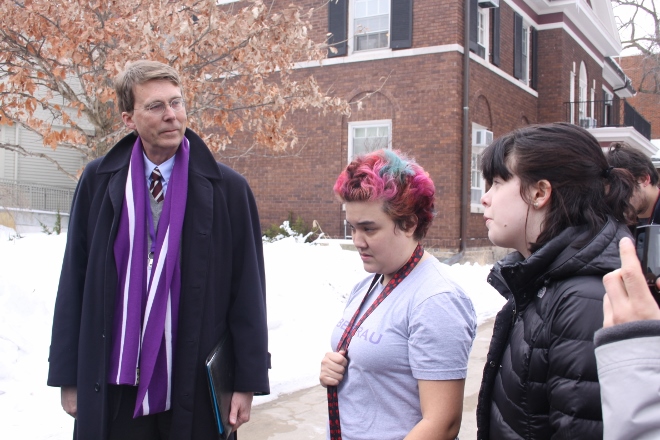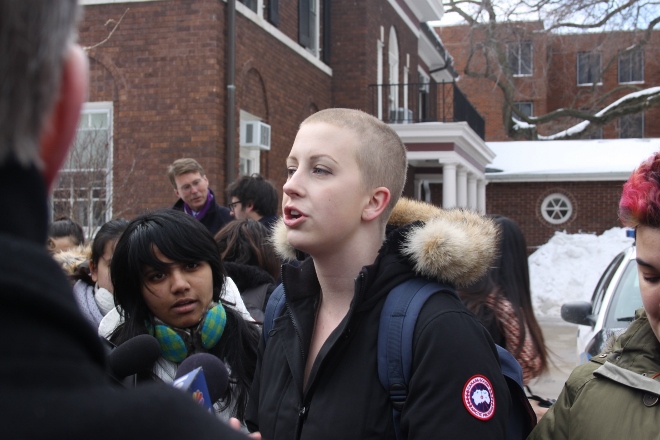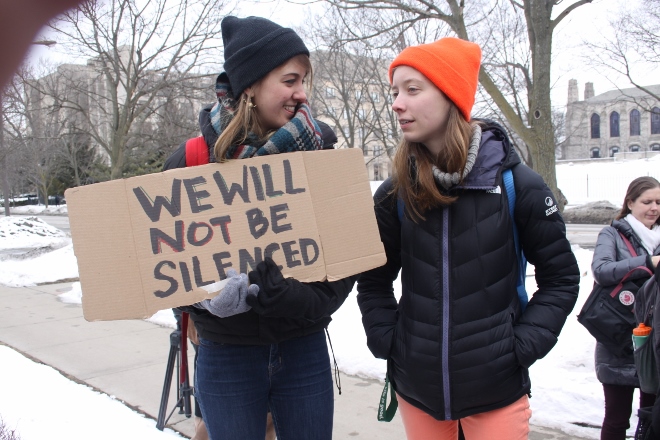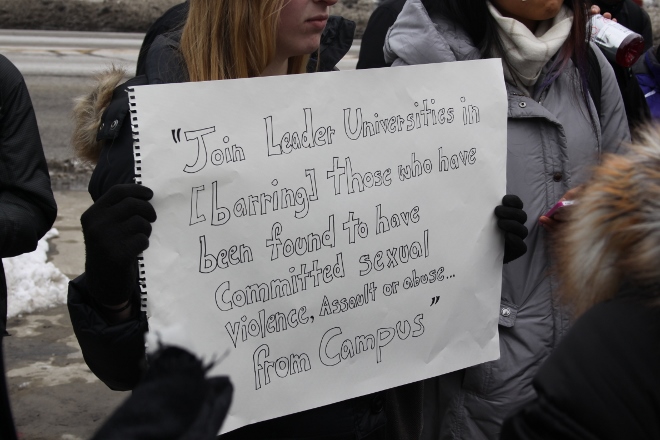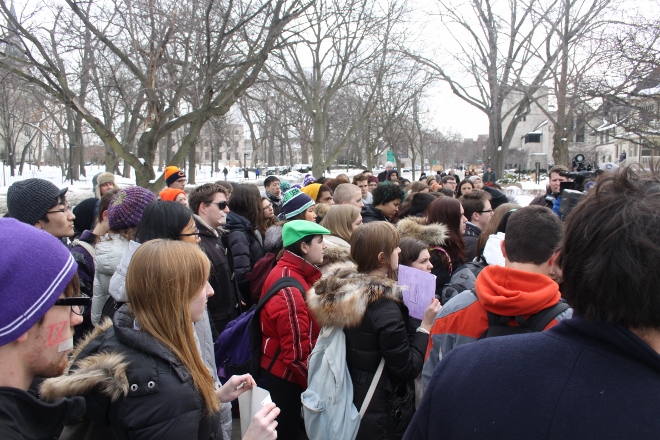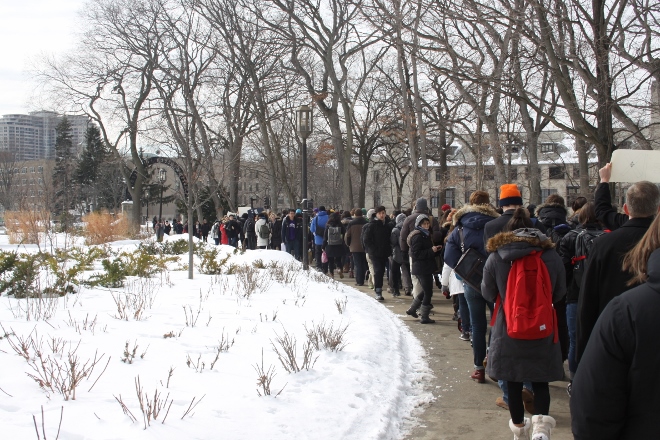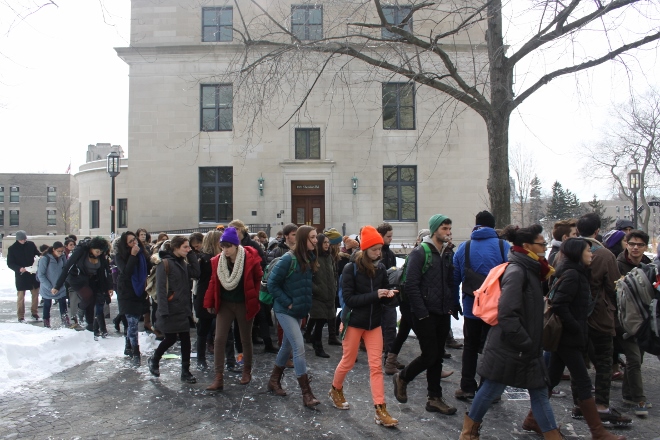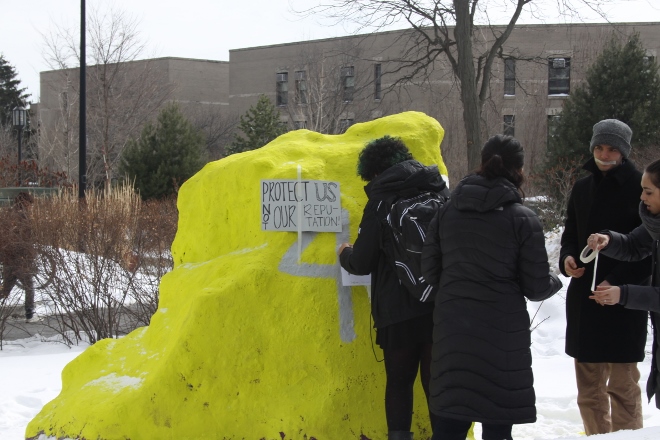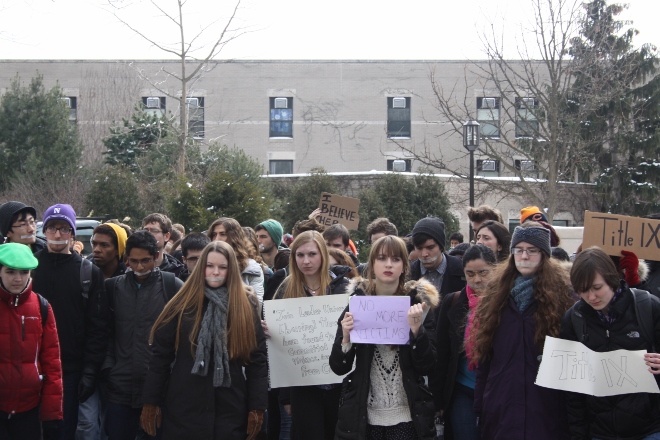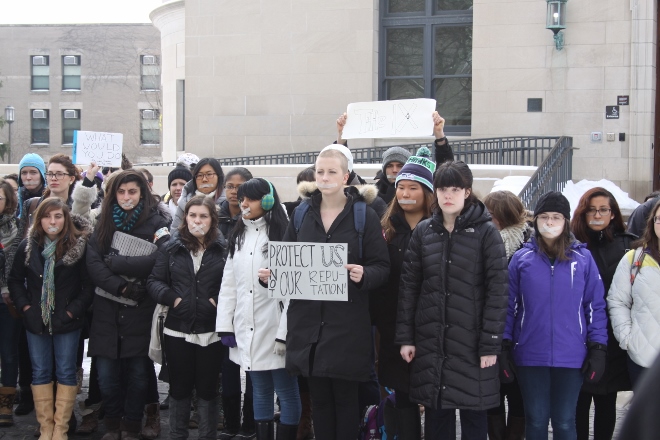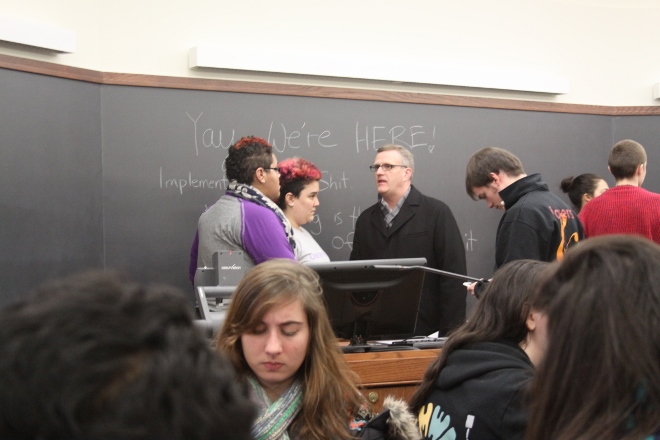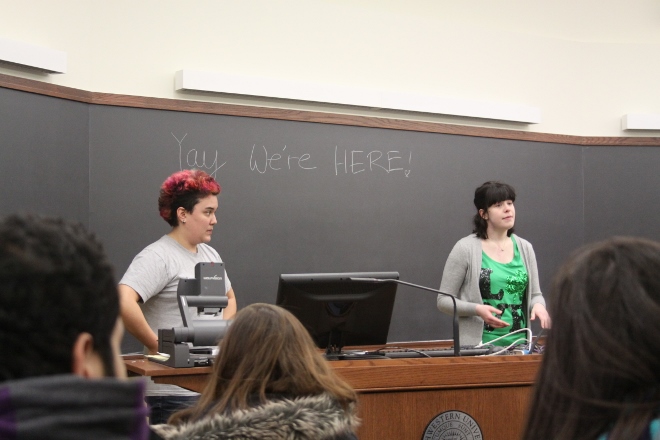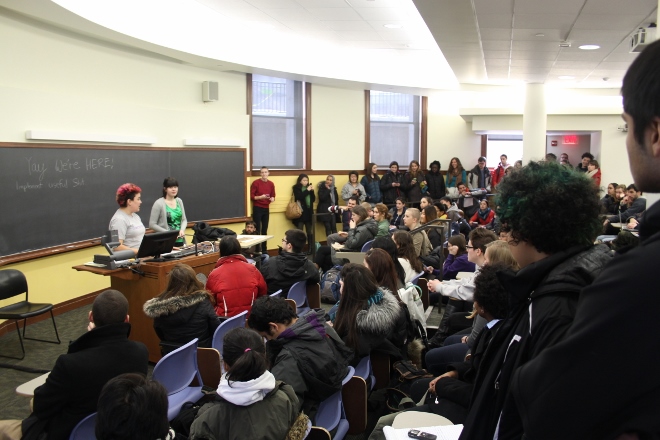The alleged sexual assault of a Medill junior has spurred student activism demanding better handling and more transparency of University sexual misconduct cases. As the University’s Title IX committee published a response to an online petition, students planned a sit-in of the alleged assaulter’s class and a march to the office of the Weinberg dean.
The victim has filed a Title IX lawsuit against the University as well as a sexual assault lawsuit against Professor Peter Ludlow. The cases stem from a February 2012 incident in which Ludlow accompanied the student to an art exhibit. The student alleges he supplied her with alcohol, though she was under 21 at the time, and took her back to his Chicago apartment, where she alleges he assaulted her.
Early Tuesday morning, Professor Ludlow emailed students in his graduate philosophy class, notifying them that class was cancelled. Nonetheless, students filled Harris L07 to standing room only capacity, and in lieu of a sit-in, held a forum to discuss future actions and clarify plans for the march.
Weinberg juniors Laura Whittenburg and Jasmine Stephens led the sit-in portion of the protest, engaging with the audience and moderating a discussion. Whittenburg said this was not only about the specific incident, but the way the University handles sexual harassment and assault cases.
“They have not made the changes that we want to see here,” she said. “They haven’t taken Ludlow out of the classroom and they haven’t made the transparency changes we think are necessary.”
At approximately 1 p.m., after a half hour discussion, students walked out of Harris out toward the Rock, where protesters stood for the media while signs were affixed to the Rock. The marchers then proceeded through the Arch, across Sheridan Road and headed north toward the Dean’s Office.
Members of the University Police were on hand to escort Stephens and Whittenburg into the building. Whittenburg said Weinberg Dean Sarah Mangelsdorf was willing to meet with a few student leaders, but would not address the protesters assembled outside, as they had requested.
“We don’t think that there needs to be any more silence on this campus,” Whittenburg said. “We’ve told them that as students we behave like Northwestern University students; they have nothing to fear by coming out here.”
Instead, Vice President for University Relations Al Cubbage spoke to the protesters and assembled media on behalf of the University.
“We believe very strongly that Northwestern is a place that is committed to responding fully to any complaints regarding sexual harassment and sexual assault,” he said. “And it is a place that very much values those things that are incorporated in Title IX.”
The idea of a protest emerged from an open forum held Monday where students gathered to discuss ways to protest the University. The forum was not hosted by any campus organization.
“The nice thing about not being affiliated with anyone is that there is no one to fine,” Stephens said.
“There was a lot of really great energy [at the forum],” Weinberg senior Monte Nelson said. “They gave some background on what was going on in the legal situation and went into how the student body could respond. One of the things that came out of it was the sit-in and walk-out."
"There were a lot of people who were really passionate about really getting Northwestern to have transparency in their process. That was really refreshing and really cool to see," said Nelson.
After the open forum, a Facebook event for Tuesday’s protest was created, which gained over 350 responses leading up to the protest. Both the open forum and Tuesday’s protest stem from an earlier online petition.
In February, faculty members circulated an online petition through Change.org demanding reform to the University’s reporting and handling of Title IX complaints. The petition also requested more transparency in reporting cases to the community, an office “independent from the University” to handle Title IX complaints and stricter disciplinary measures for faculty who commit sexual harassment.
The petition has garnered over 1400 signatures, and on Tuesday, the Title IX committee responded with a point-by-point answer to the petition’s requests in an email to students, faculty and staff.
“The Committee appreciates the valuable ideas contained in the petition and student government resolution, many of which are already in practice at Northwestern, and we will consider those suggestions thoughtfully,” the statement read.
The statement continued by explaining the processes and procedures of the Committee, detailing its disclosure policies, record keeping and disciplinary proceedings. While no major changes were announced, the Committee did concur with the petition’s authors regarding notifying victims of disciplinary actions.
“The Committee appreciates the petition’s suggestion that survivors be notified of all sanctions imposed, and will make it a priority to consider and clarify practices,” it read.
Moreover, the Committee agreed to consider an amendment to the policy on Consensual Relationships Between Faculty Staff and Students that specifies that violations could lead to termination.
However, student activists insist that the statement is not enough.
“They have not made the changes that we want to see here,” Whittenburg said. “They have not said they will make the transparency changes that we believe are necessary. I am so glad they responded … but let’s not be complacent and let’s keep going.”
Stephens and Whittenburg said they plan to repeat the sit-in Thursday during a lecture for the same class. Whittenburg posted on the Facebook group reporting that Professor Ludlow would not finish teaching his classes this quarter, and that a substitute would deliver the lectures. The University declined to comment on the claim.
